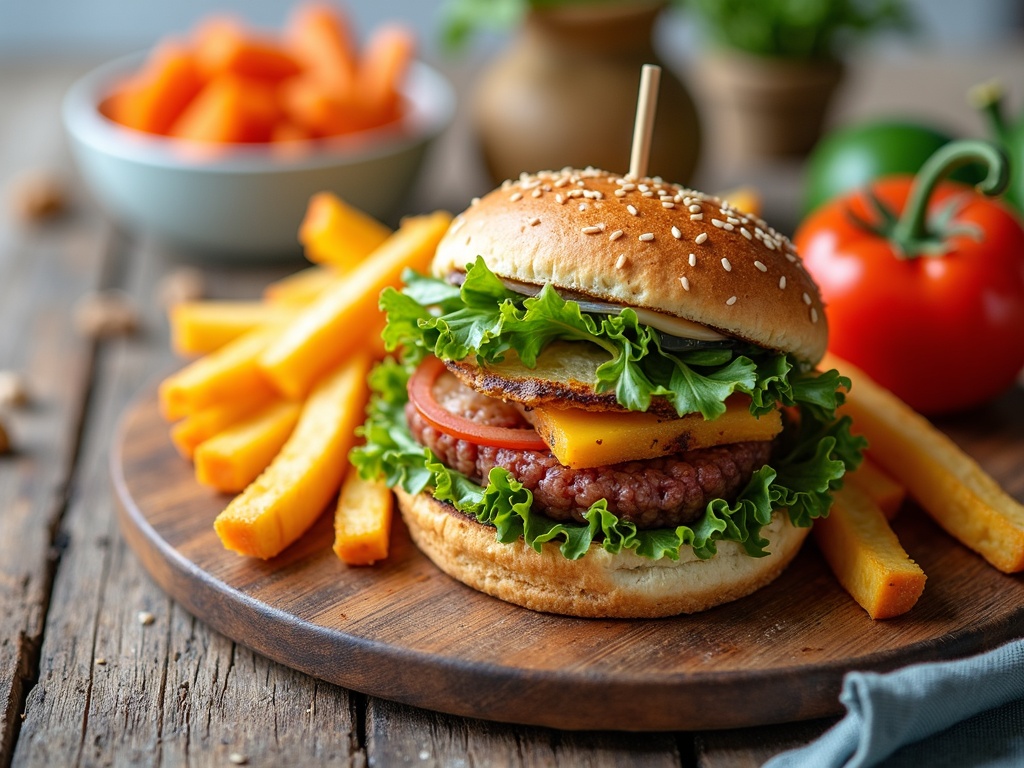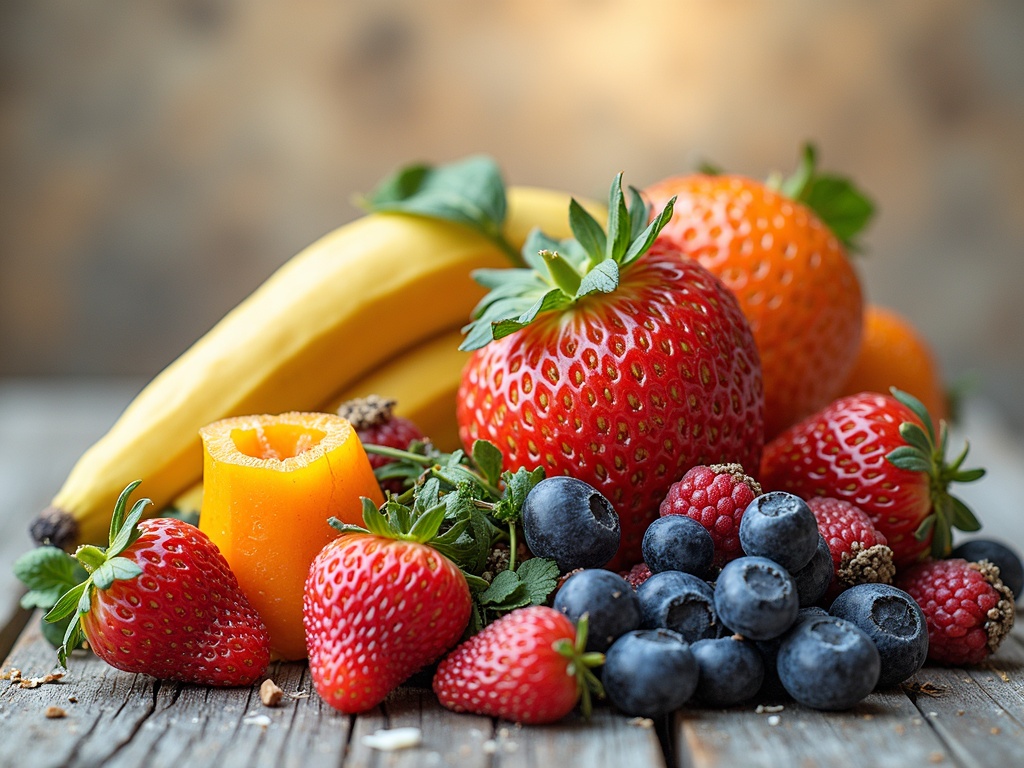Foods That Speed Up Muscle Recovery: Eat Your Way to Faster Gains
Imagine this: you've just crushed your workout. Your muscles are screaming, but a satisfying ache tells you that you've pushed your limits. Now comes the crucial part – recovery. While stretching and rest are important, what you eat can significantly impact how quickly your muscles bounce back. Forget those sugary sports drinks; let's dive into the real fuel for recovery: foods that speed up muscle repair and get you ready for your next challenge.
The Science of Muscle Recovery and Nutrition
During intense exercise, your muscles undergo stress, leading to microscopic tears in the muscle fibers. This is perfectly normal and necessary for muscle growth. However, your body needs the right building blocks to repair this damage and rebuild stronger than before. That's where nutrition comes in. Specifically, you need a combination of protein, carbohydrates, and healthy fats to kickstart the recovery process.
- Protein: The essential building block for muscle repair. It provides the amino acids needed to rebuild damaged muscle fibers.
- Carbohydrates: Replenish glycogen stores, which are depleted during exercise. Glycogen is your muscles' primary source of energy.
- Healthy Fats: Support hormone production and reduce inflammation, both crucial for overall recovery.
Timing is also key. Consuming these nutrients within a window of opportunity – typically within a few hours after your workout – maximizes their impact on muscle recovery. This is when your body is most receptive to absorbing and utilizing these nutrients.
Top Foods for Muscle Recovery
Let's explore some of the most effective foods you can incorporate into your post-workout meals to accelerate muscle recovery:
1. Eggs: The Protein Powerhouse
Eggs are a complete protein source, meaning they contain all nine essential amino acids your body needs but cannot produce on its own. Leucine, in particular, is abundant in eggs and plays a crucial role in muscle protein synthesis – the process of building new muscle tissue. Plus, eggs are packed with vitamins and minerals that support overall health and recovery.
2. Salmon: Omega-3 Rich Recovery
Salmon is a fantastic source of protein and omega-3 fatty acids. Omega-3s are known for their anti-inflammatory properties, which can help reduce muscle soreness and promote faster healing. Furthermore, they support heart health and brain function. Other fatty fish like tuna and mackerel also offer similar benefits.
3. Chicken Breast: Lean Protein Perfection
Chicken breast is a lean protein source that's versatile and easy to prepare. Like eggs, it provides all the essential amino acids needed for muscle repair and growth, without adding excessive amounts of fat. It's a staple in many athletes' diets for good reason.
4. Sweet Potatoes: Complex Carb Champion
Sweet potatoes are a complex carbohydrate that provides sustained energy and helps replenish glycogen stores. Unlike simple sugars that cause a rapid spike and crash, sweet potatoes provide a steady release of glucose, keeping your energy levels stable and supporting muscle recovery. They're also rich in vitamins and antioxidants.
5. Berries: Antioxidant Allies
Berries, such as blueberries, strawberries, and raspberries, are packed with antioxidants that help combat oxidative stress and inflammation caused by intense exercise. Antioxidants neutralize free radicals, protecting your cells from damage and supporting faster recovery. Enjoy them on their own, in smoothies, or mixed with yogurt.
6. Quinoa: Complete Protein Grain
Quinoa is a unique grain because it's a complete protein, containing all nine essential amino acids. It's also a good source of complex carbohydrates and fiber, providing sustained energy and promoting digestive health. Quinoa is a versatile option that can be used in salads, bowls, or as a side dish.
7. Nuts and Seeds: Healthy Fat Fuel
Nuts and seeds, such as almonds, walnuts, chia seeds, and flaxseeds, are excellent sources of healthy fats, protein, and fiber. They provide sustained energy, reduce inflammation, and support hormone production. However, be mindful of portion sizes, as nuts and seeds are calorie-dense.
8. Greek Yogurt: Probiotic Power
Greek yogurt is a protein-rich snack that also contains probiotics, beneficial bacteria that support gut health. A healthy gut is essential for nutrient absorption and overall well-being, both of which contribute to faster muscle recovery. Choose plain, unsweetened varieties to avoid added sugars.
9. Tart Cherry Juice: Natural Anti-Inflammatory
Tart cherry juice has gained popularity among athletes for its potent anti-inflammatory properties. Studies have shown that it can reduce muscle soreness, improve recovery time, and even enhance sleep quality. Drink it after your workout or before bed to reap its benefits.
10. Water: The Foundation of Recovery
Last but not least, don't underestimate the importance of hydration. Water is essential for all bodily functions, including muscle repair and recovery. Dehydration can impair performance, increase muscle soreness, and slow down the recovery process. Drink plenty of water throughout the day, especially before, during, and after exercise.
Creating Your Muscle Recovery Meal Plan
Now that you know which foods to prioritize, let's talk about how to incorporate them into your post-workout meal plan. Here are a few tips:
- Timing is key: Aim to consume a combination of protein and carbohydrates within 1-2 hours after your workout.
- Prioritize protein: Ensure you're getting at least 20-30 grams of protein per meal to support muscle repair.
- Choose complex carbs: Opt for complex carbohydrates like sweet potatoes, quinoa, or brown rice to replenish glycogen stores without causing a sugar crash.
- Don't forget healthy fats: Incorporate healthy fats from sources like nuts, seeds, avocado, or olive oil to reduce inflammation and support hormone production.
- Stay hydrated: Drink plenty of water throughout the day and replenish electrolytes lost through sweat.
Here are a few examples of post-workout meals that incorporate these principles:
- Grilled chicken breast with sweet potato and steamed vegetables.
- Salmon with quinoa and a side salad with avocado.
- Greek yogurt with berries and a handful of almonds.
- Protein smoothie with spinach, banana, almond milk, and protein powder.
- Omelet with vegetables and a side of whole-wheat toast.
Beyond Food: Complementary Recovery Strategies
While nutrition plays a vital role in muscle recovery, it's important to remember that it's just one piece of the puzzle. Incorporating other recovery strategies can further enhance your results:
- Rest and sleep: Give your body adequate time to rest and recover. Aim for 7-9 hours of quality sleep each night.
- Active recovery: Engage in light activities like walking, swimming, or yoga to improve blood flow and reduce muscle soreness.
- Stretching and foam rolling: Improve flexibility and reduce muscle tension by stretching and using a foam roller.
- Massage: Massage can help reduce muscle soreness and improve circulation.
- Cold and heat therapy: Applying ice or heat to sore muscles can help reduce inflammation and pain.
Listen to Your Body
Ultimately, the best approach to muscle recovery is to listen to your body and adjust your strategies based on your individual needs. Pay attention to how different foods and recovery methods affect you and tailor your plan accordingly. Don't be afraid to experiment and find what works best for you.
The Takeaway
Fueling your body with the right foods is crucial for accelerating muscle recovery and maximizing your gains. By prioritizing protein, complex carbohydrates, healthy fats, and antioxidants, you can support muscle repair, reduce inflammation, and get back to training stronger than ever. Remember to combine smart nutrition with other recovery strategies like rest, active recovery, and proper hydration to achieve optimal results. So, next time you're reaching for a post-workout snack, think about the power of food to fuel your recovery and help you conquer your fitness goals.


